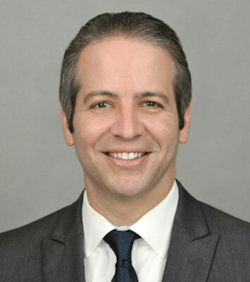As the Covid-19 pandemic reaches a point where case numbers and hospitalizations have become more manageable, an increasing number of employers are looking to return to the office for work, most often in a hybrid format that combines working from home three days a week, with the other two days in the office.
Employers are dealing with myriad issues related to the return to in-person office work, such as logistics, conduct and accommodations. The Great Resignation and the resulting tight labor market favoring employees is another challenge faced by employers.
“I think what the pandemic showed people is that there was the possibility of working from home and being efficient in doing so,” Dana Kravetz, managing partner at Michelman & Robsinson LLP, said. “My personal belief is not that people were necessarily so efficient at home, it’s that they were finding themselves more efficient at home than they thought they would have been.”
Kravetz said that working from home was easier earlier on in the pandemic, when the world was shut down and employees had fewer obligations, and that that changed as things started to open back up.
“I think the challenge is that there’s differing opinions within companies as to returning and what returning looks like,” Kravetz said.

Kravetz said he views work from home as experimental and is unsure if the trend will continue past the next several years, adding that some employees might wish to return to the office.
One of the challenges Kravetz mentioned is that leaders or managers within a company fail to embrace a company directive to work from home.
“You have managers coming in on a full-time basis, and that lends itself to potential issues of favoritism, retaliation and discrimination, and I think you can’t be blind to that,” he said.
Kravetz said that his firm advised management teams to fully embrace work from home if they adopted it, because employees would feel obligated to follow the example of management.
“You have to live and breathe it yourself,” Kravetz said.
He said that his firm had seen an uptick in work and billable hours from clients with questions about the creation of workplace policies, compliance, issues of accommodation and whether vaccines should or should not be mandatory.
On the accommodation side of things, Todd Scherwin, an employment lawyer and managing partner at Fisher & Phillips LLP, said that there is a “lack of understanding” about what protocols to follow and what is voluntary and what is not.

He said several clients had approached him with questions or comments about employees upset that a coworker was not wearing a mask despite the company having a mask-mandatory policy.
“Unless there’s more guidance that’s passed where masks are going to be required again or there’s a (Covid-19) surge again, I think that would create a whole host of return-to-work issues with requiring masks again in locations,” Scherwin said.
He said another issue raised by his clients was workplace-appropriate behavior. There are some cases in which employees seem to have forgotten how to interact with their coworkers in real life and not just as a square on a Zoom call.
“I’ve started to see more questions and concerns about potential inappropriate behavior and harassment claims and inappropriate language, almost like people need to be readjusted into society,” Scherwin said.
Scherwin added that in conversations with clients he had noticed a slight uptick in harassment and bullying complaints and inappropriate conduct complaints in general.
He also said that his firm had seen an uptick in hours due to the pandemic, adding that they had also assisted clients with the creation of workplace policies complying with local and federal regulations.

“From questions on shelter-in-place compliance, workplace safety issues and implementation of vaccine policies, to remote work and return-to-work, our national COVID-19 Task Force has been busy assisting employers across the country with navigating the unique challenges brought by the pandemic,” Scherwin said.
The firm also put together a resource center “that provides numerous resources to aid employers, ranging from comprehensive FAQs to timely insights to template documents.”
Attorney Sue Bendavid, of Lewitt Hackman, has been counseling employers on how to navigate the various labor laws that were on the books before the pandemic, as well as ones put in place in response to the crisis, such as paid-leave laws.
“Being that there are so many different overlapping laws, it was like a puzzle that they needed to consider every piece to make sure they were complying with all the various laws that are somewhat different,” she said.
Bendavid added that for the last two years her firm had been kept busy with Covid-19-related legal work, which includes policy writing and providing legal advice regarding compliance with various rules.
I’ve started to see more questions and concerns about potential inappropriate behavior and harassment claims.
TODD SCHERWIN
Fisher & Phillips LLC
One thing she said employers had been weighing was what to do regarding the vaccine.
“Previously, when lots of employers were mandating that people get the vaccines to be on the premises, there are legal issues that have been raised for those with disabilities or sincerely held religious beliefs, so that still exists as a legal issue in terms of mandating a vaccine,” Bendavid said.
Bendavid added that the reduced numbers of cases and hospitalizations made the vaccine mandate less of an issue, but acknowledged that could change if the case count and hospitalizations began to climb.
She said that prior to the dropping of mask mandates, clients had been hearing complaints and concerns from employees about coworkers not being masked, as well as issues with employees who had access to the buildings but refused to wear masks.
“We were counseling employers on how to put those proper protocols in place to make sure that people could be as safe as possible at the workplace,” Bendavid said.
